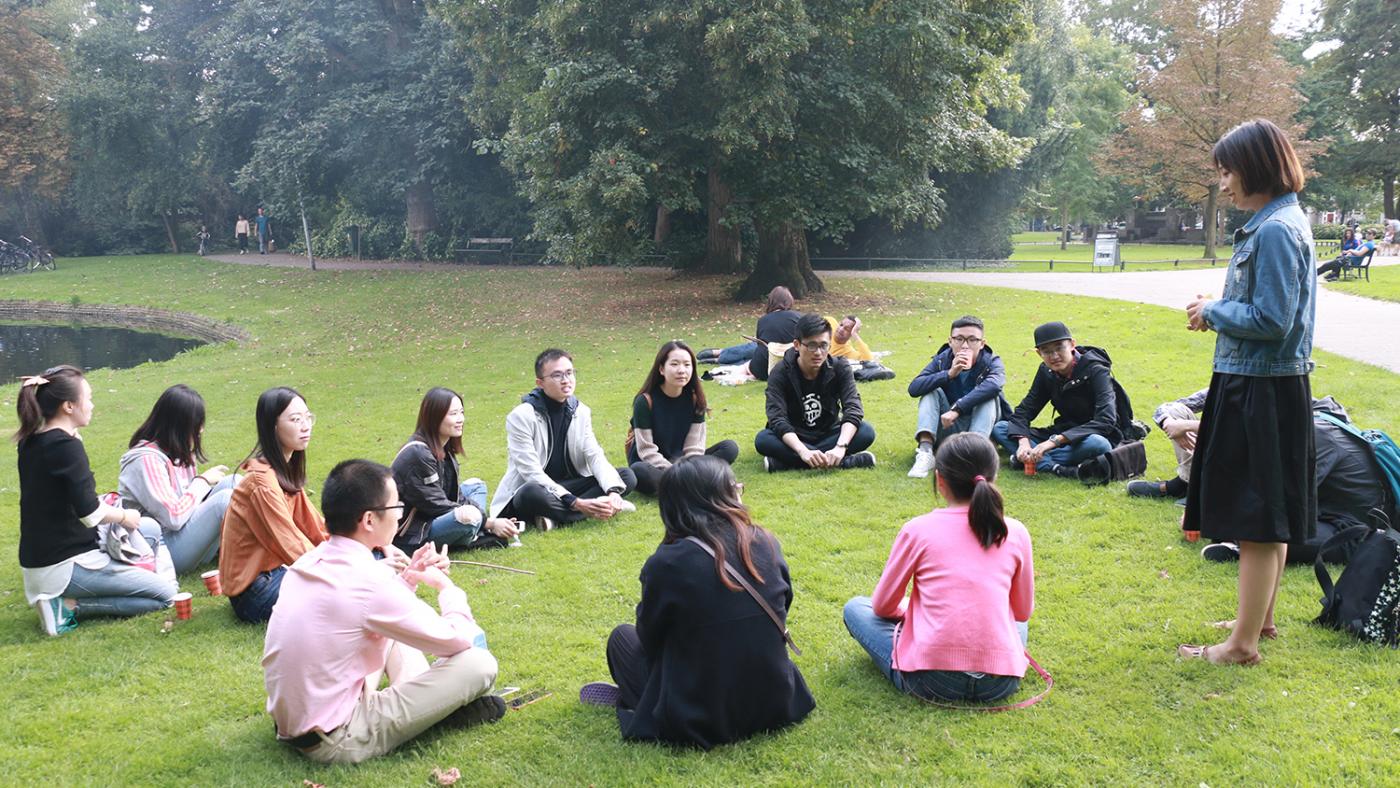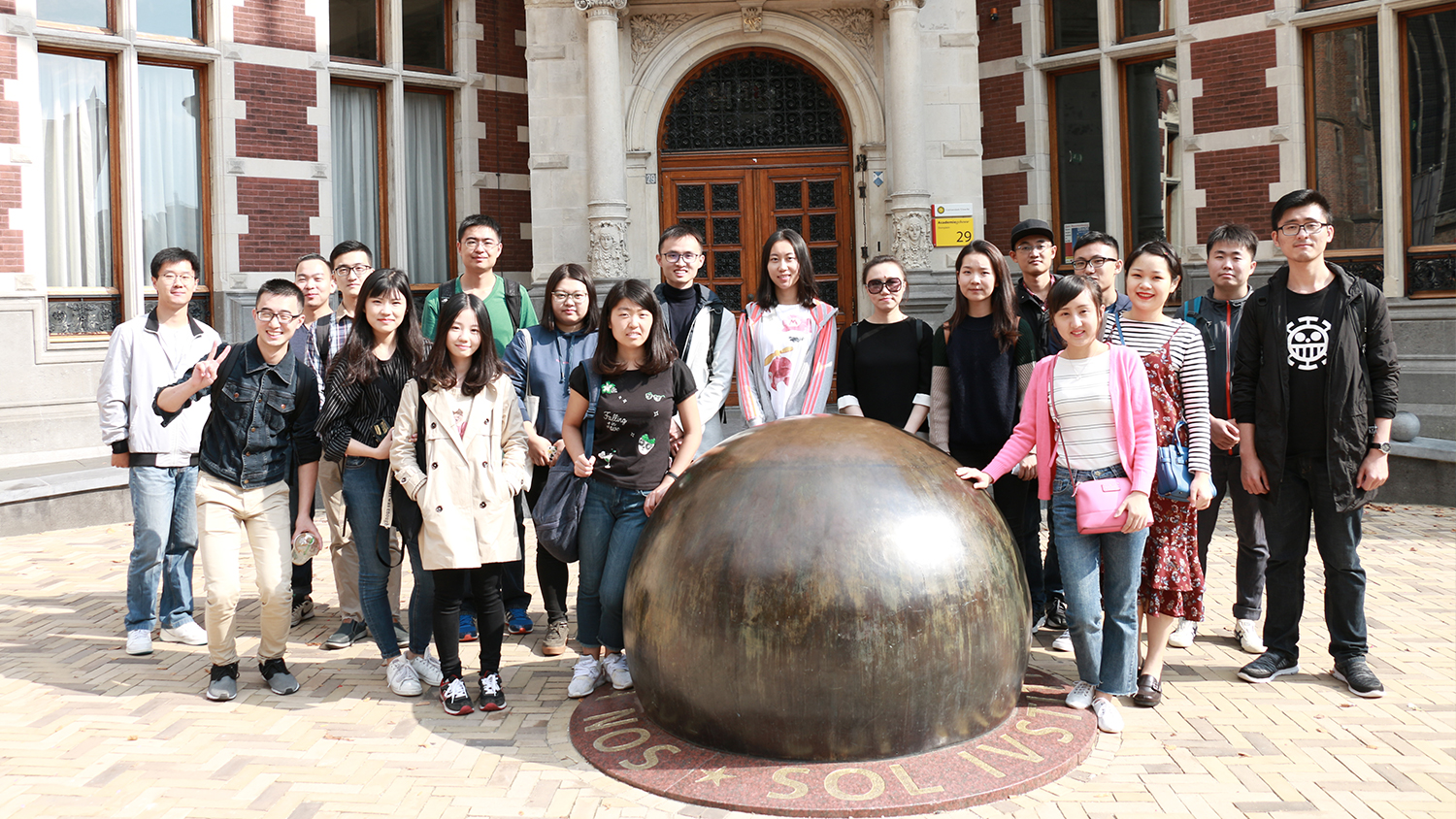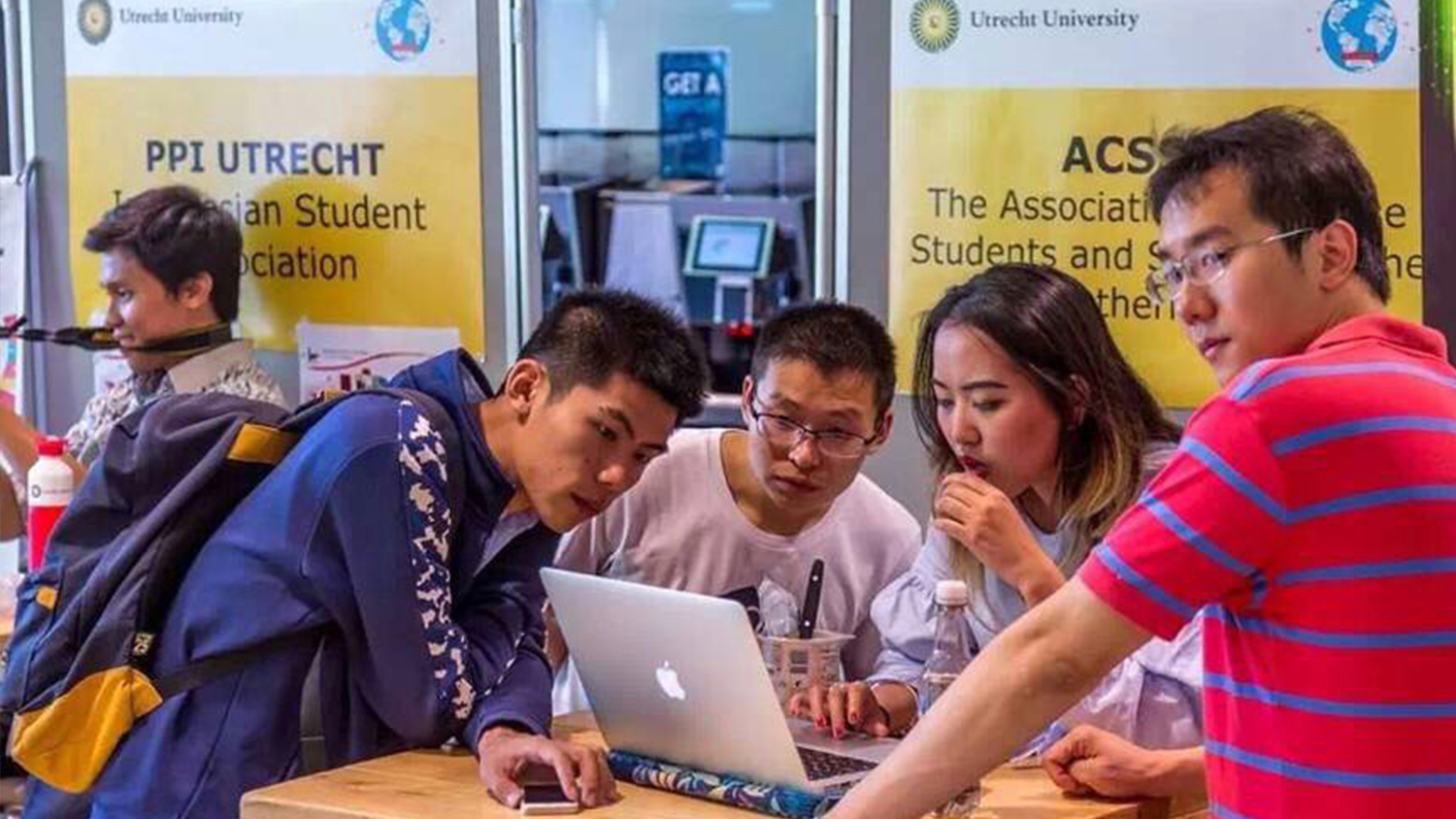The social life of Chinese students: Albert Heijn, WeChat and Werewolves

The idea was to figure out why Chinese students came to Utrecht, and why they tend to stick together. What does their social life look like in Utrecht? To answer these questions, I’ve had the pleasure of interviewing four Chinese students: Jiaxin Li (Research Master in Public Administration and Organization Science), Yanamari Deng (MSc in Business Administration), Vincent Zhao (Research Master in Religious Studies), and Siyang Kong (PhD in Sociology).
I met all of them on separate occasions, with the exception of Yanamari and Vincent, whom I happened to meet at the same picnic. We talked a lot. This article is but the ‘tip of the iceberg’.
We talked a lot about what it’s like to come to a place that’s completely foreign and a lot about what a typical day in the life of a Chinese student is like. And a lot about what the Netherlands could learn from China about nightlife, food, and not relying so heavily on an agenda (“You wanna have dinner? I have a spot in five weeks!”).
Why do Chinese students come to study in Utrecht?
What is most important for Chinese students who wish to study abroad, is to go to a good university, Siyang tells me during her interview in the Nobelstraat Doppio Espresso.
“The first thing I did when looking to go abroad was looking at the University ranking. You have to go to a top one-hundred University. And Utrecht University is doing quite well in sociology”, explains Siyang while pouring honey in her tea.
But why Utrecht when there are another ninety-nine top one-hundred universities? The most popular options are in the U.S. and the U.K., but those tend to be too expensive. Utrecht is relatively cheap, even with its Non-EU/EEA student fees (15.575 euros per year). And whilst education is free for all in Germany or Norway and other northern European countries, these programmes are often not in English. Utrecht boasts a wide selection of English programmes, at a relatively low cost.

Why don’t we all just hang out together?
In a perfect world everybody gets along and has a good time together. We’re quite far from that, but why? It’s simple really: we don’t hang out because of language. Jiaxin tells me this while sitting in the Blackbird Coffee bar on Oudegracht. “We have a problem with our language…We organize activities and I notice that Chinese students, in particular scholars, tend to prefer hanging out with their Chinese friends”.
And despite the fact that virtually every Dutch student speaks English, this barrier still separates the Dutchies from the internationals, but the effect is even stronger for Chinese students. Their language is completely different from English or any Latin/Anglo-Saxon language.
The effort it takes from both sides to communicate what are sometimes simple thoughts or ideas is not what people generally look for when they’re grabbing a beer together. Add to that, loud music and the fact that the subtle social cues and body languages are also completely different, and you’ve got a perfect recipe for not hanging out together.
“Sometimes we do mixed activities and we mostly get two groups where you have the people who want to speak Chinese on one side and the people who want to speak English on the other. Most students prefer to speak their mother tongue when they’re having fun. I really think language is a big barrier”, continues Jiaxin, after sipping on her mint tea.
Why don’t we meet on social media?
We’ve got Facebook (well, for now at least… Stop selling my data, Zuck), and the Chinese have WeChat. Think WhatsApp, but now imagine you can pretty much do everything WhatsApp can do and way more. Gotta message your friends so that you can hang out? Check. Want to read articles about where all the trees with edible chestnuts are in Utrecht? Check. Gotta send a Tikkie? Check. Gotta pay Utilities and Rent? Check, check, check. It also has more than 1 billion active, monthly users (Facebook has 1.23 billion).
It is a double edged sword, however. The problem is that when Chinese students come to the Utrecht, everything here is done through Facebook or WhatsApp. Most Chinese don’t use Facebook because it is still censored in China. The solution many Chinese students employ is to make a Facebook account solely for their social lives in Utrecht. This works, but is usually not effective. Which platform are you going to use? The one with the 43 friends you met in the first couple of months of your masters, or the one with all your friends and family from back home?
So what would be a typical night out for Chinese students?
One of the reoccurring themes in my interviews was food and how much of a part of Chinese nightlife it is. In China, night markets are a quintessential part of a night out. “There’s BBQ, you just order, sit down, eat and drink. They count the skewers at checkout. They do it almost all over China. It’s called a night market. This happens almost the whole year. In winter, everyone’s cold, but they still do it. It’s really cheap…Everybody from China complains that this is not here,” said Jiaxin.
An understandable lament, given that in a typical night out in Utrecht you’re lucky if somebody ordered bitterballen or loempia. The eating still does happen, arguably, just later at Cafetaria het Hoekje or Ten Beste.
Another popular choice in China is Karaoke. Sit around a table, order a few drinks (usually with all you can drink deals) and dissonantly sing your heart out. In Utrecht and in most of Europe, a night out usually means a pub or a club, this isn’t part of the Chinese nightlife. “Dutch people prefer to dance, or go to bars. This is how they relax. I like to dance, but I had to learn how to do so. [Chinese students] here should learn to adapt to the living style here”, Jiaxin observes.
So what does a Chinese student do on a typical night out? Typically, and unlike for most, the designated night out is not Thursday, but Friday. “Every Friday we have drinks but the bar changes every week. Friday or Saturday are the only times we can relax”, Jiaxin explains.
Do Chinese students have a network in the Netherlands?
For a Chinese student, one of the big perks of studying in the Netherlands is the ACSSNL (the Association of Chinese Students and Scholars in the Netherlands). The Association organizes everything from sports events and galas all the way to country-wide singing contests. It’s a huge, legal entity recognized by the Dutch Chamber of Commerce (KvK) and officially linked to the Chinese embassy with branches in seventeen Dutch cities.
Jiaxin, who is the current chair of the Utrecht branch, is also one of the hosts on the official ACSSNL WeChat channel, featuring student-run news broadcasts, articles, events, et cetera, et cetera. I mean, it really is a great endeavour: for those who want, they consistently have a network away from home that they can hang out with or get help from for whichever bureaucratic battle they might be facing.
“When I first came here four years ago…we did a lot of things together. I had to get my ID, my bankcard, my registration and I did that together with other Chinese students”, Siyang admits. It’s particularly helpful since, to a Chinese student who first comes to the Netherlands (or any foreign student for that matter), everything is new and confusing. A network of people that have done it all before is like manna from heaven.

Are Chinese students trying to integrate more?
It’s easy to see how a Chinese student might be able to live happily in her own social bubble. This was made clear by Yanamari and Vincent over a picnic on a sunny afternoon at the Lepelenburg park. “I hear about a lot of students who come to Utrecht, and after four years, they speak better Chinese and learn to play Mahjong really well”, Yanamari explaines as she scoopes up some hummus with her tortilla chip; “but very poor English”, continues Vincent.
But are Chinese students trying to integrate more? “It depends…”, Vincent answers, “I personally want to seize these opportunities and force myself to practice my English and make new friends. I think that a lot of new students from China are too shy to communicate”. And so they stick together. Vincent continued thoughtfully, “I think I also belong to the [Utrecht] Chinese community, to China, but I also belong to this University”.
So what do Chinese students typically like to do together?
A popular activity is going to the supermarket or the farmer’s market on Vredenburgplein together. ‘I’m going to Albert Heijn!’ is a message you’re likely to see when opening your WeChat.
One activity did stick out, however. It’s funny and it’s apparently quite popular: playing intense games of twelve-player Werewolf. Yeah you know! That game where you sit in a circle and accuse that sketchy looking guy of being a murderous wolf. It wasn’t so much the game itself that I found funny, but rather, the location: the University library in the city centre! They book a room for twelve and allegedly play for hours on end. “There’s few places where we can fit 12 people” said Jiaxin while laughing. “…Most prefer to play this game with only Chinese people because they know better when one is lying or telling the truth. It would be more difficult with foreigners,” Jiaxin continues.
Integration takes time, especially for Chinese students. Language is the prime culprit, but there are many reasons why they tend to bundle up. It is also up to us, however. Next time you see your Chinese classmate, why not invite him or her over for a spontaneous, off-agenda, dinner? A fun BBQ, perhaps. We should also be the ones trying to build bridges. And maybe, just maybe, one day, we can all play one big game of Werewolf.